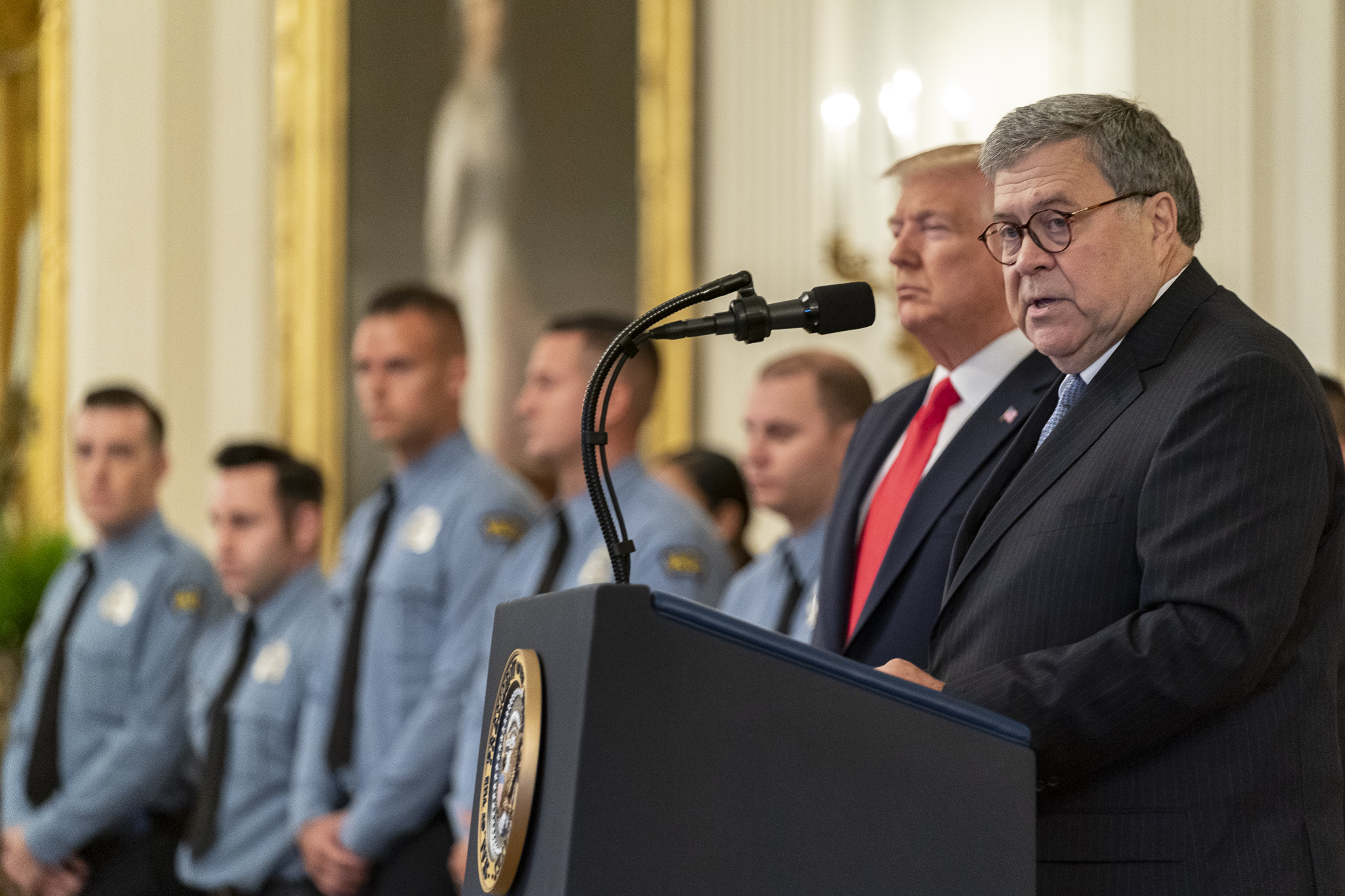Today's Headlines and Commentary
An ISIS AUMF?
Published by The Lawfare Institute
in Cooperation With

An ISIS AUMF? Almost exactly a year after the Obama administration first sought an authorization for the use of military force against ISIS, the Washington Post reports that there are renewed murmurs in Congress about the possibility of a new AUMF. Spearheaded by the White House’s decision on Friday to put boots on the ground in Syria, the Senate Foreign Relations Committee is now preparing a briefing on new legislation. Yet, any new AUMF would likely face the same challenges in Congress that sank proposals for an ISIS AUMF the last time around.
The New York Times examines the heavily mixed political reactions to the deployment of Special Operations ground troops in Syria. Within Congress, members are split as to whether the 50 troops set to be deployed are 50 too many or instead are far too few. Abroad, Saudi Arabia indicated its approval of the plan, though officials from other Arab countries suggested that this new U.S. plan would not make progress toward defeating ISIS or toward ousting Syrian President Bashar al Assad.The Post considers the impact that 50 special forces could have in bolstering efforts against the Islamic State in northern Syria, noting that much will depend on the assets they bring to the fight and how far they are allowed to go in terms of combat operations.
The Post also takes a look at the implications of sending in ground troops, writing that the deployment appears aimed at retaking Raqqa from ISIS's control and clearing the militant group from a swath along the Syria-Turkey border in order to create a safe haven for refugees. At this point, U.S. officials are aiming for a more “granular” approach rather than operating according to a broader strategy.
While Friday’s talks in Vienna concluded in a discussion of a possible nationwide ceasefire, Reuters explains that “key differences remained between rivals backing opposing sides” and over the weekend, "fighting escalated despite a flurry of diplomatic activity."
Following the Syrian government’s shelling of Douma, a rebel-held Damascus suburb, rebels have captured members of the Alawite sect as hostages, the Times reports. The rebels are using the hostages, who are being paraded in cages, to persuade the government to stop the shelling and threaten to kill the hostages should the shelling continue. Meanwhile, the Islamic State has advanced across central Syria, seizing Mahin, a city in the Homs province, forestalling any hopes that the militant group was withering under the multi-nation and multi-coalition assault in Syria.
As tensions between Iran and Saudi Arabia continue to flare in Vienna, Iran claimed that "it would quit Syria peace talks if it found them unconstructive, citing the 'negative role' of Saudi Arabia" on the discussions. BBC tells us that Iranian hardliners are alarmed at Iran’s participation in the discussions, fearing that the nuclear agreements have triggered a wave of undue Western influence.
In Afghanistan, splinter factions of the Taliban have named a new leader of their own, rejecting the unified Taliban’s new leader Mullah Akhtar Mohammad Mansour. The move to select Mullah Mohammad Rasool Akhund as a leader of the splinter group follows months of the internal turmoil that resulted from the death of the group’s former leader Mullah Omar and the question of his successor.
Foreign Policy sheds light on President Obama’s decision to leave troops in Afghanistan, following his departure from office, and the impact that his decision will have on U.S. government contractors.
The Long War Journal reports that the United States destroyed an al Qaeda training camp in Kandahar earlier in October. Stretching over a 30 square-mile area, the camp is believed to have been the largest al Qaeda training facility ever, raising questions about whether U.S. intelligence has underestimated al Qaeda's presence in the country.
Secretary of State John Kerry is in Central Asia, where, according to the Post, he seeks to “reassure the five “Stans” that they are not forgotten as the United States draws down in nearby Afghanistan.” In discussions with the President of Uzbekistan, Islam Karimov, Kerry “discussed the potential for cooperation on trade, security and the environment if it improves its human rights record.”
urkey held parliamentary elections yesterday, with Turkey's ruling Justice and Development Party (AKP) notching a large victory. The AKP regained single-party rule over the country’s government, but “opponents fear [that the AKP’s victory] heralds growing authoritarianism and deeper polarization.” The Post writes that the election “marks a considerable political coup for President Recep Tayyip Erdogan, who has been at the helm of the country for 13 years and now looks likely to further entrench his rule.”
The Iraqi parliament has voted to restrict Prime Minister Haider al-Abadi’s ability to pass reforms without first consulting lawmakers. The move came after Abadi unilaterally enacted reforms in August, reforms that members of parliament deemed a violation of the constitution. Those reforms included dismissing the vice presidents and deputy prime ministers and cutting the salaries of government employees.
The Times reports that Iran has begun the process of decommissioning thousands of centrifuges used for enriching uranium in keeping to its commitments under the nuclear accords.
The Daily Beast’s Shane Harris tells us that GTT Communications Inc., an American contractor, is supplying Iran with Internet. He asks whether GTT's service to the country violates the U.S. Department of Treasury's sanction guidelines and why the company would be providing service to Iran.
U.N. special envoy to Yemen expects talks between Iranian-backed Houthi rebels and Saudi-allied forces loyal to Yemeni president Ali Abdullah Saleh to begin by mid-November. All major parties to the conflict have agreed to implement “U.N. Security Council Resolution 2216, which calls on Houthi and Saleh forces to withdraw from main cities and surrender arms captured from Yemeni government forces.”
On Saturday, a Russian plane crashed over the Sinai Peninsula, killing all 224 people on board and prompting speculation about the causes of the crash. The local Islamic State-affiliate claimed responsibility for the crash, citing Russia’s intervention in Syria as the reason behind the attack. Officials have not ruled out the possibility of the Islamic State’s involvement in the incident, but it remains unclear whether the group is behind the crash. Meanwhile, the company that owned the aircraft has ruled out technical or pilot errors, an account which was contradicted by Russian officials as being premature hours later. The AP has more.
Violence continues in Israel as yet another Palestinian attacker who attacked an Israeli soldier was shot by Israeli forces. In a separate incident, another Palestinian stabbed an elderly Israeli woman and others before being shot. As violent attacks continue, the Israeli government is divided on whether or not to return the bodies of reported Palestinian terrorists to the Palestinian Authority.
In a series of attacks on Saturday, a publisher of secular magazine was found hacked to death in Bangladesh, the Post reports. The Times tells us that al Qaeda claimed responsibility for the attacks. The attacks follow the circulation of “hit lists” which have targeted secular writers and authors critical of fundamentalist Islam in Bangladesh.
A popular hotel in Mogadishu, Somalia was attacked by Islamist militants. Al Shabab claimed responsibility for the attack which killed at least 14 people.
As part of his visit to Asia, Secretary of Defense Ash Carter met with his South Korean counterpart and “urged North Korea [] to immediately cease all activities related to its nuclear program." The two defense chiefs also reaffirmed their commitment to the U.S.-South Korean alliance. The South Korean defense minister also expressed his support the U.S.'s freedom of navigation operations in the South China Sea.
Writing from Malaysia in Defense One, Carter called for a “new commitment to military, academic, business and scientific partnerships,” pointing to both the opportunities within and challenges facing the Asia-Pacific region.
In China, the chief editor of a regional state-run newspaper has been fired and expelled from the Communist Party for “groundlessly commenting” on government policies. The Journal reports on Zhao Xinwei’s firing, which appears to indicate a crackdown on dissent within the Party. The newspaper in question is located in the western Xinjiang region, which has been a focus of government concern following violent protests by the region’s Uighur population.
The White House has unveiled a new cybersecurity initiative that will attempt to bolster government responses to cyber attacks and mitigate potential cyber threats. In addition to other measures, the policies intends to extend the protections of the Department of Homeland Security's EINSTEIN system throughout the federal government.
The Miami Herald writes that the 9/11 trial hearings concluded with a discussion of the role of female guards at Guantanamo Bay, following Judge Army Col. James L Pohl’s controversial order restricting female guards from touching the defendants. Hearings will resume in mid-December.
What to do about Guantanamo? With the president drawing near his last year in office, the Times examines the “unsavory” choice faced by Obama as to how best to deal with the persistent political difficulty posed by Guantanamo Bay. In Jack Goldsmith’s words, “Not closing Gitmo eight years after he pledged to do so would be a failure for his legacy… But the only way to close it is to use an extraordinarily aggressive interpretation of executive power to act against the will of Congress.”
The Hill writes that the Obama administration is hoping to reduce the secrecy surrounding drone strikes as the end of the president’s term draws closer. Top White House officials met with a group of legal experts and human rights advocates last week in an effort to plan for increased transparency. One of the advocates stated that she was “very optimistic” that a push for policy change would result from the discussions, though she was unsure what form it would take.
An FBI website designed to train teachers and students to combat the potential influence of violent extremism has come under fire from Arab, Muslim and other civil rights groups, the Times reports. After being invited to view the program, many experts and community leaders expressed concern that the FBI’s efforts would unfairly target Arab and Muslim students. The website was originally intended to go live today, though it is not clear if this will still take place.
Parting shot: It’s fall--the season of warm beverages, colorful leaves, and autumnal frolicking captured on Instagram. The Instagram, that is, of brutal Chechen dictator Ramzan Kadyrov, who has requested that his social media followers (including various other notorious Chechen strongmen) post pictures of themselves among the fall leaves. #AutumnColors.
ICYMI: This Weekend, on Lawfare
Ben provided the latest edition in his “correction column” for New York Times editorials, this time on the release of Shaker Aamer. Ben also shared his thoughts on the release of Aamer from Guantanamo Bay on Friday. Quinta rounded up the press statements from DOD, Reprieve, and Aamer himself following the former GTMO detainee’s release.
Jack highlighted a new story from the Times’ Charlie Savage on the internal Obama administration debate regarding executive power and the detention facility at Guantanamo Bay.
Yishai Schwartz updated us on the activities on the ground at Guantanamo Bay, summarizing the 10/26 session in the 9/11 pre-trial hearings. Francesca Procaccini did the same for the 10/28 session, which focused extensively on whether detainee Walid bin Attash could fire and replace his defense counsel.
In this week's Foreign Policy Essay, Denise Natali of the National Defense University, challenged the claim that now is the time for Kurdish independence.
Bobby outlined the parameters under which U.S. special operations forces will deploy into Syria, noting that SOF deployments in Syria will not yet extend as far as those in Iraq.
Zack Bluestone brought us the latest edition of Water Wars, which among other topics, explored the PRC’s “double trouble in the South China Sea.”
Paul Rosenzweig alerted an arbitration court in the Hague jurisdiction has agreed to hear the Philippines’ claim against China over disputed territorial claims in the South China Sea.
Herb Lin wrote on large-scale geoengineering and the threat that it presents to national security.
Cody shared the newest edition of the Lawfare Podcast, which features Marvin Kalb on “Putin’s Imperial Gamble.”
Dustin Lewis, Naz Modirzadeh, and Gabriella Blum argued that the ongoing investigations into recent bombings of medical facilities in conflicts from Afghanistan to Yemen to Syria should reaffirm international humanitarian law principles protecting medical staff and facilities.
Finally, Nicholas Weaver explored the less than accurate security advice given by the Nuṣra Front’s English language magazine.
Email the Roundup Team noteworthy law and security-related articles to include, and follow us on Twitter and Facebook for additional commentary on these issues. Sign up to receive Lawfare in your inbox. Visit our Events Calendar to learn about upcoming national security events, and check out relevant job openings on our Job Board.






